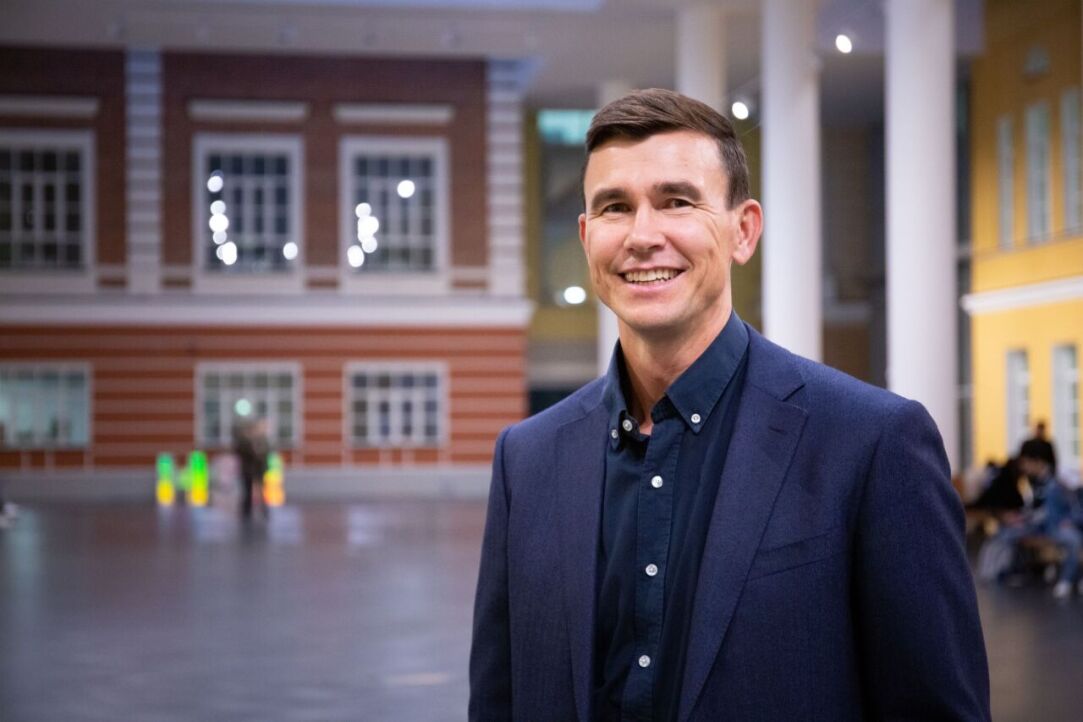‘We Will Develop the Sports That Staff and Students Are Fond of’

The HSE Corporate Academy has established the Sports Community Support Centre, headed by Olympic rowing champion Sergey Fedorovtsev. He spoke with the HSE News Service about his career, university sports, and the centre’s work.
— How did you become an athlete? Why did you choose rowing?
— I was born in Rostov-on-Don, and I was an active child. I tried out many sports, showing good results and the potential to become a talented athlete, but my professional career started in rowing. First, I wanted to be the best in the group, then the best in city competitions, and then in 1996 I decided that I wanted to become a professional athlete and go to the Olympics.
Academic rowing is a unique sport—the only one in which you move with your back towards the finish line. It can be either an individual or team effort, and rowers use all muscle groups. Competitions are held on the water and outdoors, and the locations are constantly changing.
— How did your sports career develop?
— I became a champion in young men’s competitions, and then the adult champion of Russia. In the spring of 2000, together with senior athletes, we assembled a great team to go to a qualification regatta, and then to the Olympic Games. But I fell ill unexpectedly and was diagnosed with a complicated condition. The doctor advised me to change my sport, but I decided not to. This was followed by the most difficult period of physical training in my life, including an unbearable workload and endless workouts. In 2001 I won silver in the Russian championship and returned to the national team. In 2003 I qualified at the World Championships, then in 2004 I won the Olympic Games in Athens. I was the youngest in the team, and I was assigned the leading role in the rowing crew.
Our victory in the Olympics came as a surprise to many people, but we prepared very intensely both physically and psychologically. Although there were other victories after the Olympics, that one remained the most important for me.
— You came to work at HSE University in 2022 at the Department of Physical Training. How did that happen?
— Quite by accident. An HSE student called me and said he would like to train with me. I didn't know this student, but he somehow managed to persuade me to join the training. There were two teams there, a men's and a women's team. Now we train all year round, both on the water and on rowing machines in winter, and the teams show good results.
— How did you come up with the idea of creating the Sports Community Support Centre?
— During a Sunday jog with HSE Rector Nikita Anisimov, we discussed possible trajectories for developing sports at the university.
There are a lot of fans of various sports among the students and staff of HSE University. There is a Running Club—a community of running enthusiasts headed by Anna Kozyreva, Head of the Promotions and Communications Unit of the Faculty of Computer Science. I am very glad that she agreed to work part-time at our centre.
— Who else among your colleagues is actively involved in sports?
— It’s well known that HSE University Rector Nikita Anisimov is fond of sports: he constantly participates in runs, setting an example for others. Vice Rector Shamil Akhmetov is fond of football, Dmitry Zemtsov does fencing, and Alexey Koshel plays chess (we once played a couple of games, and I lost both). I hope that other colleagues will find an opportunity to join university communities in their sports.
The HSE Department of Physical Training headed by Oleg Bulykin, a great leader and former successful athlete, has also contributed to the development of sports communities at HSE University.
— Does the Sports Community Support Centre have a plan for the next five years? How many employees and students do you aim to involve in sports?
— Two years ago, at the Russia–Country of Sports international forum, President Vladimir Putin said that 70% of Russian citizens should be regularly involved in sports by 2030. I think our university can also focus on this indicator. We will develop the sports that staff and students are fond of.
The Sports Community Support Centre aims to create a favourable environment for the development of sports and physical education and strengthen ties between various teams. Sports and active recreation are a good way to overcome stress, achieve psychological and emotional relief, and maintain and strengthen health—and everyone has the opportunity to try it.
Today, for many people, HSE has become a university that not only provides high-quality education, but also pays great attention to sports. We will strengthen and develop this image.

